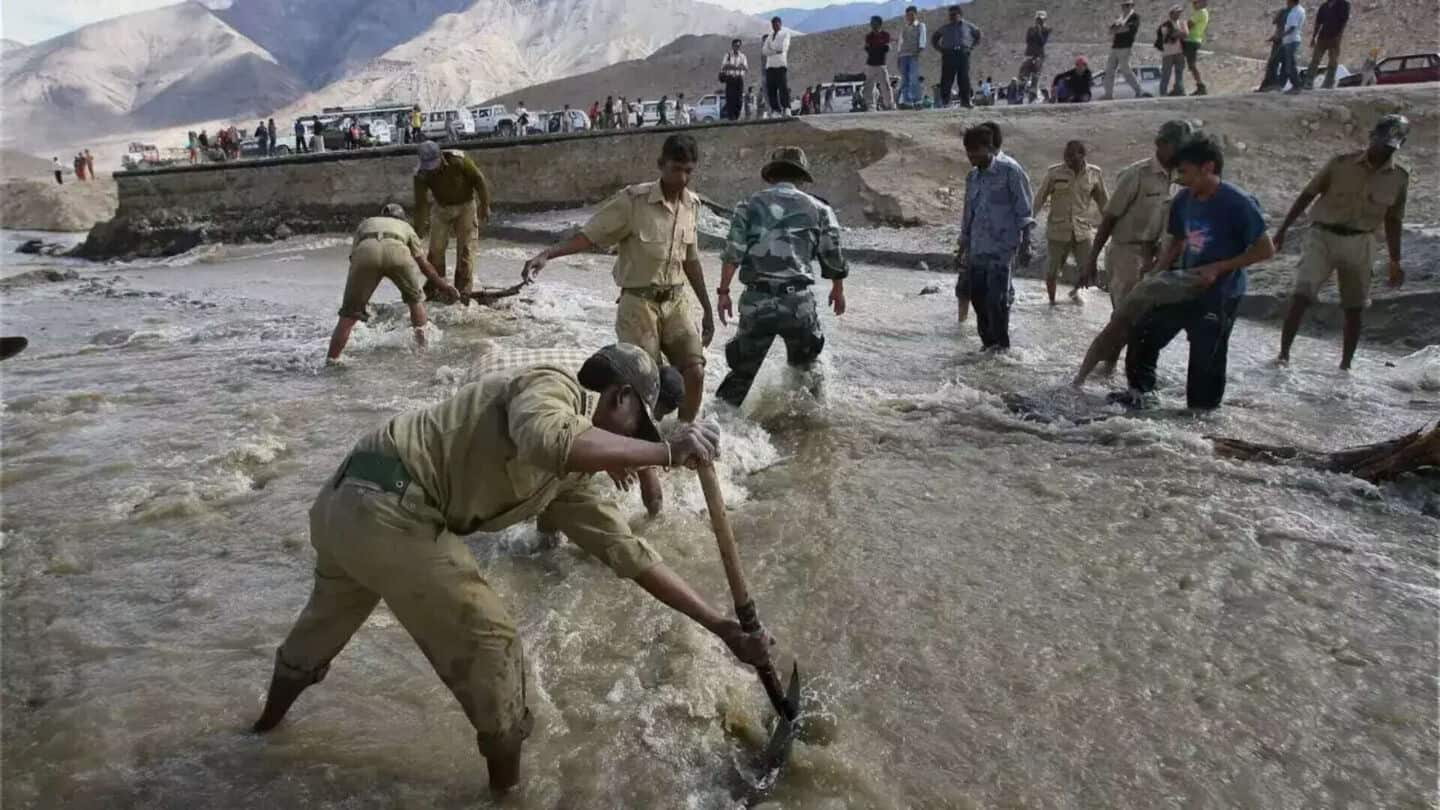
Why Pakistan's challenge to India's Indus Treaty suspension won't work
What's the story
After India's suspension of the Indus Waters Treaty (IWT) in the wake of the Pahalgam terror attack, Pakistan is looking to challenge the decision on an international platform. New Delhi has halted the crucial IWT of 1960, promising to do so till "Pakistan credibly and irrevocably abjures its support for cross-border terrorism."
Diplomatic tensions
Pakistan condemns India's suspension of IWT as 'act of war'
Pakistan has condemned India's decision as an "act of war," according to Prime Minister Shehbaz Sharif's office. The official statement warned that any attempt to alter the flow of Pakistan's water under the IWT would be considered an act of war. Now, Islamabad is preparing to take international legal action against New Delhi for suspending this crucial treaty.
Agricultural impact
IWT is vital for Pakistan's agriculture and economy
The IWT, which was signed by India and Pakistan on September 19, 1960, after lengthy negotiations, lays down the use of waters from six rivers. After the Pahalgam attack in April 2025, India suspended the treaty. This has placed Pakistan in a tight spot, as it heavily depends on these waters for agriculture. The sector contributes greatly to the country's GDP (24%) and employment rates (37.4%).
Legal recourse
Pakistan has options to challenge India's suspension of IWT
Pakistan's Minister of State for Law and Justice, Aqeel Malik, has said that Islamabad is considering several legal options to challenge India's suspension of the IWT. These include either raising the issue at the World Bank—the treaty's facilitator—or approaching either the Permanent Court of Arbitration or the International Court of Justice (ICJ) in The Hague, or third, bringing it before the United Nations Security Council.
Legal stand
India's defense against potential legal actions by Pakistan
India's water resources officials are confident they have a strong legal standing if Pakistan challenges the IWT suspension. India has maintained that it would abide by the ICJ but has signed a declaration listing 13 exceptions where the court wouldn't have jurisdiction over it. One of the conditions signed by India is that the ICJ will not have jurisdiction over "disputes with the government of any State which is or has been a Member of the Commonwealth of Nations."
Enforcement limitations
World Bank lacks enforcement authority in treaty disputes
This means that India cannot be brought before the ICJ by Pakistan, a Commonwealth country, since its jurisdiction is not relevant in the matter. Additionally, though the World Bank has been facilitating the appointment of neutral experts and arbitrators, it has no enforcement authority. It cannot enforce the treaty's overall management or its enforcement. Former Pakistani law minister Ahmer Bilal Soofi earlier said that if India suspended the treaty, Pakistan would have limited options to seek its revival or implementation.